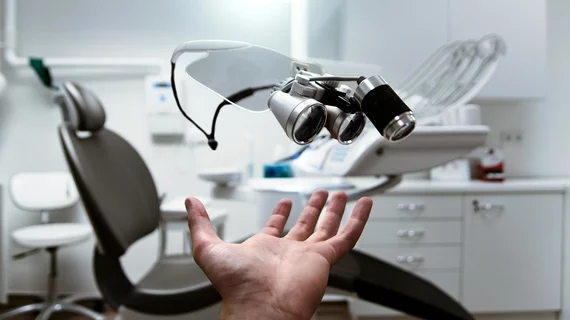GenAI-focused market researchers: ‘The payer–provider divide is wide and has dangerous implications’
Healthcare providers and payers disagree on a lot of things. But the camps are united in their appreciation of workers who have GenAI-advancing skills―programming, statistics, machine learning, data processing and visualization. And so on.
Then too, that’s another area of friction, isn’t it? After all, providers and payers fish the same waters for AI-capable talent. In any case, the research that found the area of commonality also found almost three-quarters of providers and payers believe GenAI will make its greatest impact on health outcomes and patient experiences.
The work was conducted by HFS Research in partnership with the IT services and consulting company Cognizant. HFS says the team drew its findings from interactions conducted with executive-level leaders at 350 provider and payer organizations.
In a summary of the resulting report, HFS research leaders Rohan Kulkarni and Saurabh Gupta highlight six “illuminating and actionable highlights for the next wave of healthcare opportunities.” GenAI figures prominently without dominating their discussion:
1. A shift in funding helps address the diverse needs of health consumers.
The U.S. healthcare system must address each generation’s needs appropriately, which is “a growing demand the younger generations vocalize,” Kulkarni and Gupta write. “This demand should drive seismic shifts in thinking about how health and care need to be delivered.” More:
Enrollment in self-insured employer plans is soaring at the expense of commercial insurance with the resonance of new care delivery models, such as subscription-based primary care and digital-first care services.
2. Vertical integration is designed to expand influence and mitigate risks.
More than 50% of healthcare enterprises, including health plans and health systems, are reacting to both threats—loss of high-margin business, new competition—and opportunities, such as new markets and emerging technologies, the authors note. They comment:
These acquisition profiles reflect consolidation and vertical integration to expand healthcare enterprise reach.
3. Healthcare enterprises drive blind on health consumer needs.
“Despite having ambitious growth aspirations through acquisition, nearly 60% of health plans and health systems admit to lacking a robust understanding of their evolving member or patient needs,” Kulkarni and Gupta report. More:
Conversely, however, more than 50% of payers and providers claim they have the digital capabilities to meet consumer needs.
4. The payer-provider divide is wide and has dangerous implications.
Over 50% of health plans and providers recognize a high to very high disconnect between their respective operations that directly impact member experience and health outcomes, the authors write. Ironically, they add, there is a divergence in their belief of why the disconnect exists; while payers blame data integrity, providers blame regulations.
Despite the disconnect about the drivers of the disconnect, about 70% of payers and providers assign the highest priority to addressing their operational divide.
5. GenAI’s expected impact spans a spectrum.
Payers and providers are intrigued by GenAI’s potential, the authors underscore. However, they note, “payers appear to be convinced that GenAI is a game changer, particularly for administrative functions.” By contrast:
Providers are more muted about the impact of GenAI but do agree it has the potential to positively impact care delivery.
6. The lack of GenAI vision can impact investments.
While more than 70% of payers and providers anticipate the greatest impact of GenAI on health outcomes and member experience, the HFS researchers report, only 20% have a vision for GenAI that is influencing their investment decisions.
Approximately 50% plan to invest between $1 million and $10 million in GenAI, with about 70% anticipating this spending will occur within the next two years.
Read the summary here. (Scroll down to obtain the full report.)

